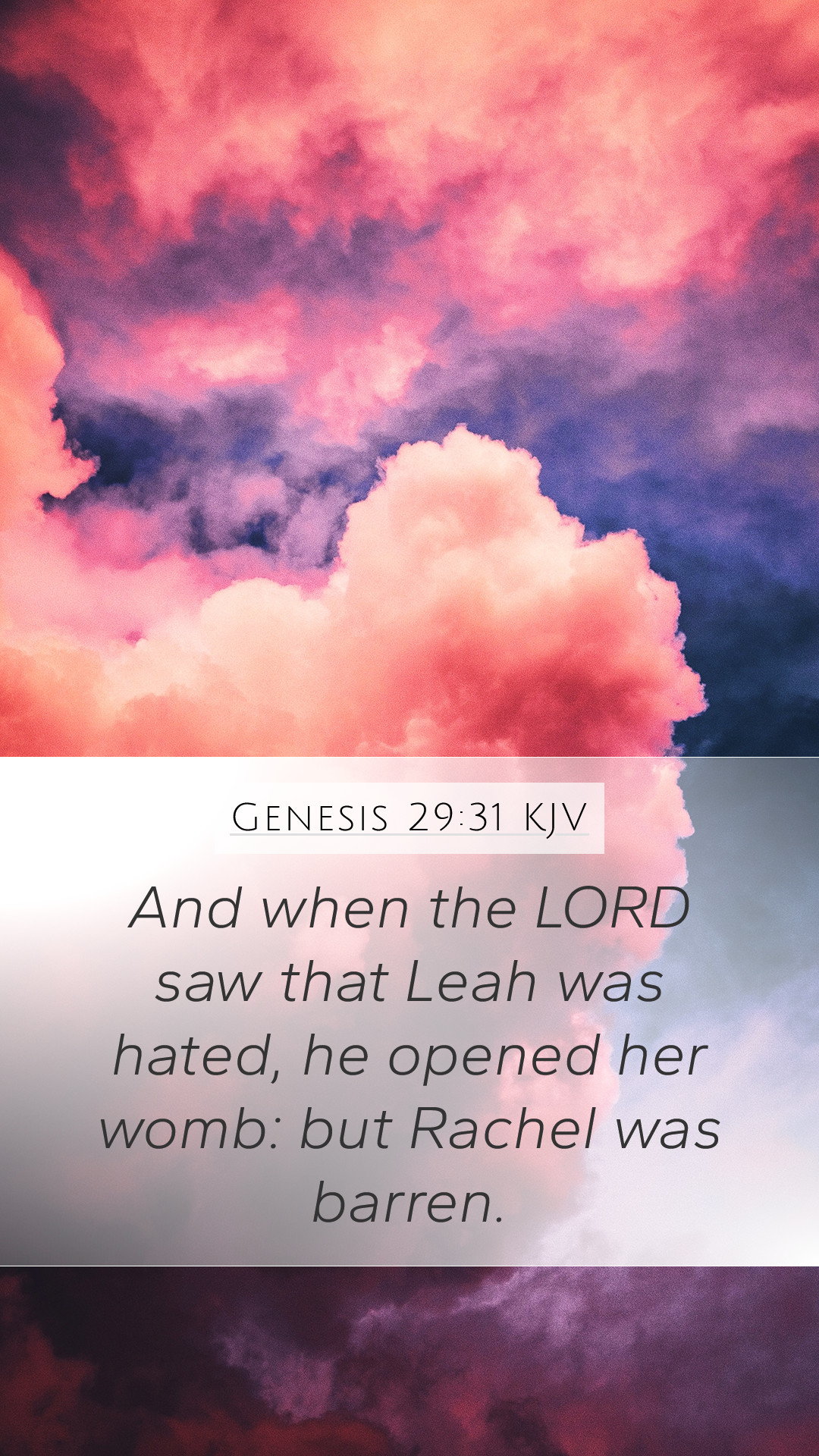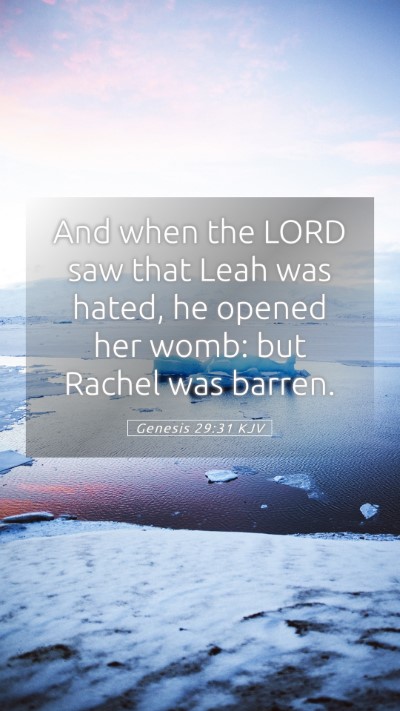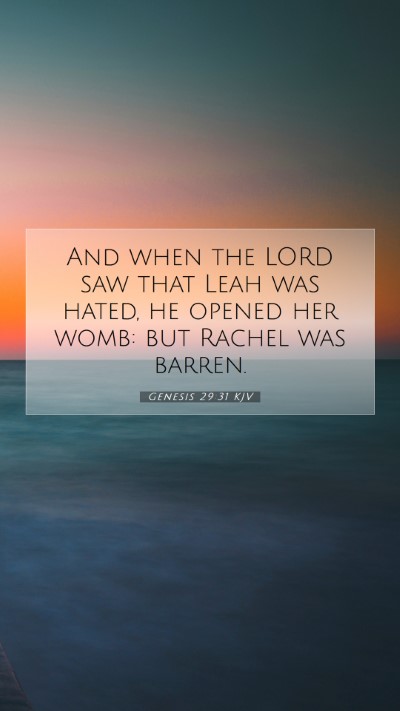Understanding Genesis 29:31
Genesis 29:31 states:
"And when the Lord saw that Leah was hated, he opened her womb: but Rachel was barren."
Summary of Biblical Meaning
This verse reveals profound insights into the dynamics of family relationships, divine intervention, and the unfolding of God’s plan in difficult circumstances. Here, the Lord’s attention to Leah’s plight illustrates His compassion for the downtrodden.
Bible Verse Commentary
- Matthew Henry Commentary:
Matthew Henry emphasizes God’s love for the rejected. Leah, feeling unloved by Jacob, was favored by God through the blessing of children, which served both to elevate her status and to fulfil God’s purpose in the lineage of Israel.
- Albert Barnes Commentary:
Albert Barnes explores the societal implications of Leah's situation, noting that her being "hated" indicates a serious emotional and spiritual struggle. Barnes suggests that God’s provision of children to Leah while Rachel remains barren serves to highlight God's sovereignty and the fulfillment of His promises.
- Adam Clarke Commentary:
Adam Clarke adds historical context by discussing the significance of children in ancient times, offering insights into how a woman’s value was often measured by her ability to bear children. He elaborates on the emotional turmoil within the family and how God works through these tribulations to bring about His divine plan.
Significance of the Verse
Genesis 29:31 poses several important themes for personal reflection and study:
- Divine Awareness:
This verse reassures believers that God sees the struggles and pains we face, especially those who feel marginalized or unloved.
- God's Sovereignty:
The opening of Leah’s womb is a testament to God's control over life and fertility, showcasing His power to intervene in human affairs.
- Redemptive Purpose:
God’s choice to bless Leah with children ultimately leads to the birth of a tribe of Israel, signifying His ability to bring good from difficult circumstances.
Applications for Bible Study Groups
This verse opens avenues for discussion in bible study groups:
- Consideration of emotional pain in relationships and God's response.
- Examination of the role of women in biblical narratives and the significance of motherhood.
- Discussion on how God’s interventions can reshape our understanding of personal significance and purpose.
Cross References
This passage connects with several other verses in the Bible that explore similar themes:
- 1 Samuel 1:5-6: Hannah’s barrenness and God’s eventual blessing.
- Psalm 113:9: The Lord’s ability to provide for the barren.
- Genesis 30:22-24: God remembers Rachel and opens her womb.
Conclusion
In conclusion, Genesis 29:31, while recounting a historical narrative, serves as a profound reflection on God’s compassion, sovereignty, and the redemptive purpose in human suffering. Through bible study insights from commentators like Henry, Barnes, and Clarke, one can appreciate the depth and multi-faceted implications of this verse in understanding God’s desire to uplift the lowly and fulfill His promises.
For those seeking an in-depth Bible verse analysis or Biblical exegesis, this verse offers rich material to explore the implications of divine intervention in relational dynamics, human pain, and the unfolding of God's historical purposes.


